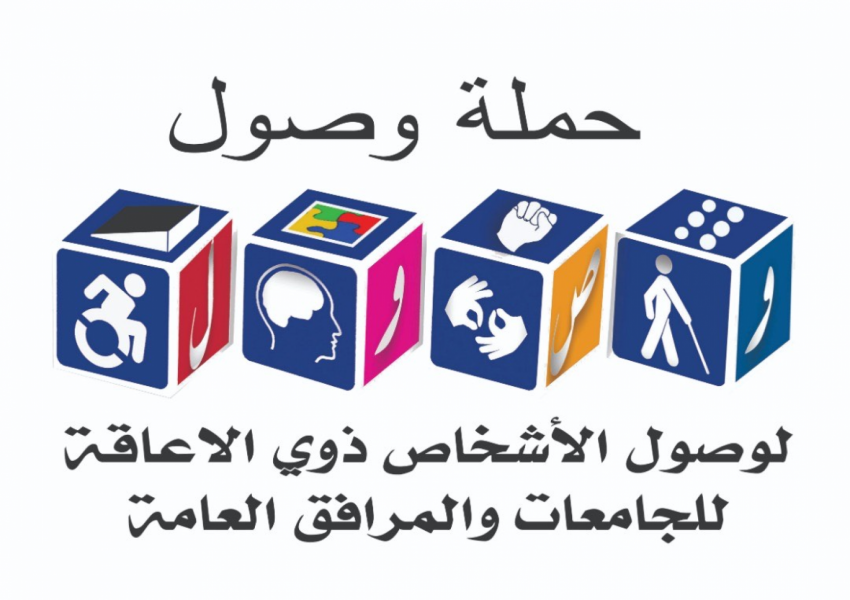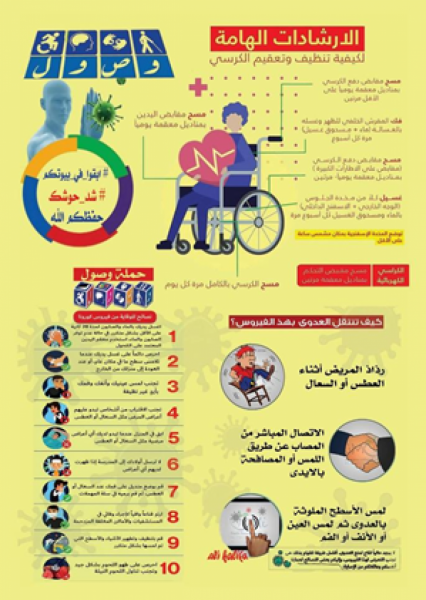
In times of crisis, marginalized communities are often overlooked as governments, under pressure to move quickly to deliver policy responses, neglect the particular social vulnerabilities of these groups. Since the beginning of the COVID-19 crisis in Libya, the National Democratic Institute’s (NDI’s) civil society partners from the “Access” campaign have been advocating for inclusive policies to recognize the particular challenges faced by persons with disabilities (PWDs). At the onset of the pandemic, proposed government policies did not incorporate the needs of PWDs. Now, due to the advocacy work of civil society actors supported by USAID and NDI, Libyan government institutions are in the process of mainstreaming policies that significantly broaden the inclusivity of the Libyan response.
NDI has been working with the coalition of civil society organizations making up the“Access” campaign since the spring of 2019 as they attempt to foster government policies that address PWD-specific issues. Made up of nine organizations from across Libya, the campaign has secured commitments from several ministries and universities to provide support to persons with disabilities as they pursue higher education. They have also held large public gatherings in pursuit of this goal in major municipalities in eastern and western Libya.
Under a previous campaign, these civil society organizations advocated for better access to polling stations for persons with disabilities, as well as greater accessibility in public spaces. In response to that campaign, the Ministry of Local Governance decreed that all public markets must be accessible to persons with disabilities. The coalition responded rapidly to the global coronavirus pandemic, shifting its focus to advocating for inclusive government responses to the virus and posting awareness information tailored to the particular needs of persons with disabilities.

In early April, campaign members found the government’s COVID-19 response to be lacking support for persons with disabilities. They approached the National Planning Council and committed to drafting an inclusive Emergency Plan. As “Access” campaign members drafted this plan, NDI provided close technical support, working through policy recommendations with members of the campaign to produce a comprehensive policy that could be presented to the Council and other stakeholders in government. In their plan, they advocated for a wide range of policy shifts, including: the establishment of an urgent care unit dedicated for PWDs during this time, the provision of health offices in each municipality with data surrounding PWDs in their communities, the establishment of a help-line for PWDs, the activation of a home health-care service, and the delivery of medications. On April 21, campaign members delivered the plan to the National Planning Council with great success; the Council agreed to adopt their plan.
Unfortunately, the Council informed the “Access” campaign that there would be an approximately 20-day lag before implementation of the plan could begin. If they wanted to push for a more immediate response, “Access” campaign members would need to approach the National Center for Disease Control (NCDC), the government body responsible for implementing the emergency action to combat the coronavirus. In order to propose a policy change to the NCDC, the campaign would have to present a more comprehensive adaptation of the plan that they had presented to the National Planning Council. As such, NDI staff began working with members of the campaign to expand the breadth and depth of their plan to suit the requirements of the NCDC, diving further into the details of their policy recommendations, determining which agencies would be responsible for delivering particular services, and monitoring indicators and timelines. NDI also worked with members to develop speaking points to ensure that the campaign representatives were well prepared to meet with decision-makers. Following a successful meeting with the NCDC, the campaign’s Strategic Plan has since reached the Interior Ministry, which has expressed its support and intention to mobilize the Social Solidarity Fund to provide funding to enact the campaign’s recommended measures.
“I’m very proud of myself and my colleagues for the [creation and advocacy surrounding] this plan. We have been successful in linking public institutions together to begin its execution. I feel that the “Access” campaign has had a powerful influence on the government. I would like to thank NDI for their continuous support.’’ – “Access” Campaign Leader
The positive receipt of the campaign’s plans were a significant step forward in crafting an inclusive emergency response that takes into account the particular vulnerabilities of PWDs in Libya. Members of the “Access” campaign are now building on their successful proposals, working to link the Social Solidarity Fund with municipalities to ensure that resources are being effectively mobilized, and that their recommendations are being implemented effectively. At each stage of this advocacy process, NDI worked directly with advocates to troubleshoot policy options and provide technical support, and will continue to do so moving forward. The “Access” campaign, in advocating for marginalized communities during a crisis that has exacerbated existing inequalities, has moved the Libyan government towards a vision of more consultative and inclusive policy making, a practice that will hopefully continue following the crisis.
NDI’s engagement with civil society organizations in Libya is implemented with support from the United States Agency for International Development (USAID) through the Consortium for Elections and Political Process Strengthening (CEPPS).
Authors: Andrew Blunt is a Project Assistant with the MENA Team at NDI and Fathia Atig is a Program Officer with the Libya team at NDI.
—
View original story at NDI.org